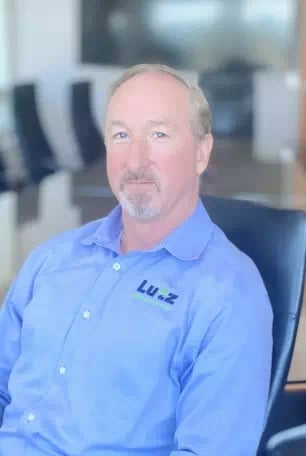Is Your Small Business At Risk of Fraud?

$6.3 billion in total losses. That's what the 2016 ACFE Report to the Nations on Occupational Fraud and Abuse found when studying occupational fraud. And who suffered the most? Small businesses.
Business Statistics You Need to Know
According to ACFE's report:- 2% of cases caused losses of $1 million or more.
- It was estimated the typical business lost 5% of revenue in a year as a result.
- $150,000 was the median loss for all cases in the study.
- More than 75% was committed by employees working in accounting, operations, sales, upper management, customer service, purchasing, and finance.
- 6% originated in accounting departments.
How to Protect Your Small Business from Fraud
Small businesses suffer the greatest impact from fraud and embezzlement. They have limited resources and often don't have the anti-fraud systems in place that larger organizations do, which makes them more vulnerable. It's also more common for small businesses to have a single person in charge of accounting rather than a team, which makes it easier for a fraudster to scheme longer.Warning Signs
- Individuals who commit fraud are typically unorganized, behind on their work, for instance, accountants that don't issue timely financial statements.
- Individuals who commit fraud often have a trustworthy friend or family-like relationship with owners.
- Individuals who commit fraud display behavioral signs such as living beyond means, having close relationships with vendors or customers, having excessive control issues, struggling financially, and dealing with a recent divorce or family problems.
Protection Methods
Quick detection is key in preventing significant damages. According to the report, businesses with anti-fraud systems in place were able to detect fraud 33-50% faster than those without, and their losses were 14-54% lower because of early detection. A "red flag reporting" (or anonymous tip) system is the most common method for protecting your business. In ACFE's study, hotlines were found to be the primary tip-off system (39.5%), followed by email (34.1%) and web-based or online forms (23.5%). If your small business does not have anti-fraud control processes in place, you could be at risk. Please contact us if you have any questions.
- Activator, Achiever, Individualization, Analytical, Focus
Bill Kenedy
Bill Kenedy, Consulting & M&A Shareholder, began his career in 1990. He established Lutz's M&A practice in 2015 and has led its growth since then while serving on both the firm's board of directors and the Lutz Financial board.
Specializing in mergers and acquisitions, Bill guides business owners through critical transition decisions. He provides comprehensive exit planning and transaction services, with specialized expertise in the construction industry. Bill values helping owners achieve optimal outcomes by developing strategic solutions tailored to their unique situations.
At Lutz, Bill says it straight, offering candid guidance that helps owners make informed decisions about their businesses' futures. His direct approach to setting realistic expectations, combined with his focused drive to get deals done, has made him the go-to advisor for business transitions. As a Certified Exit Planning Advisor (CEPA), Certified Public Accountant (CPA), and Accredited Business Valuator (ABV), Bill brings technical expertise to every transaction. Under his leadership, the M&A practice has grown from a concept to a cornerstone of Lutz's service offerings.
Bill lives in Elkhorn, NE, with his wife, Angela. Outside the office, he spends time fishing, hunting, and following various sports teams.
Recent News & Insights
Is sales-based apportionment helping or hurting your bottom line?
Employee Stock Ownership Plan (ESOP) Benefits & Best Practices
The 60/40 Portfolio is Alive and Well
International Momentum Continues




%20(1).jpg?width=300&height=175&name=Mega%20Menu%20Image%20(2)%20(1).jpg)
%20(1)-Mar-08-2024-09-27-14-7268-PM.jpg?width=300&height=175&name=Untitled%20design%20(6)%20(1)-Mar-08-2024-09-27-14-7268-PM.jpg)

%20(1)-Mar-08-2024-09-11-30-0067-PM.jpg?width=300&height=175&name=Untitled%20design%20(3)%20(1)-Mar-08-2024-09-11-30-0067-PM.jpg)
%20(1).jpg?width=300&height=175&name=Mega%20Menu%20Image%20(3)%20(1).jpg)
%20(1).jpg?width=300&height=175&name=Mega%20Menu%20Image%20(4)%20(1).jpg)
%20(1).jpg?width=300&height=175&name=Mega%20Menu%20Image%20(5)%20(1).jpg)
-Mar-08-2024-08-50-35-9527-PM.png?width=300&height=175&name=Untitled%20design%20(1)-Mar-08-2024-08-50-35-9527-PM.png)


.jpg)




